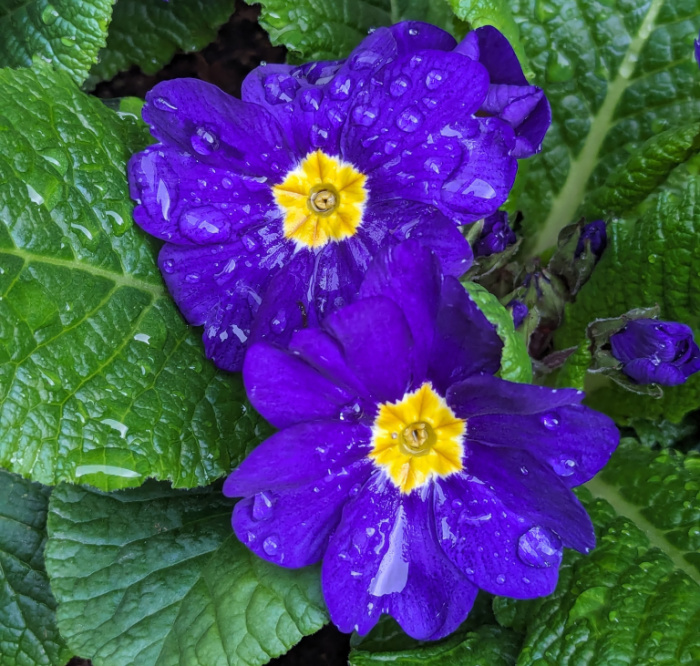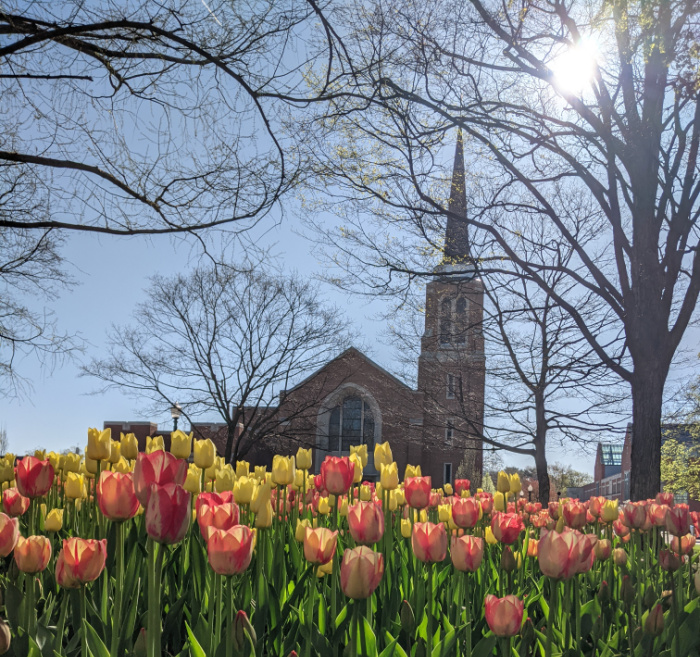Daily Dose (Dec 12 – 15)

Tuesday —
In Brendan, (Frederick Buechner’s novel about a sixteenth-century Irish saint), a servant recounts a conversation between Brendan and Gildas, a crippled and bitter old priest.
“I am as crippled as the dark world,” Gildas says.
“If it comes to that, which one of us isn’t my dear?” Brendan replies.
Gildas with but one leg. Brendan sure he’s misspent his whole life entirely. I who had left my wife to follow him and buried our only boy. The truth of what Brendan said stopped all our mouths. We was cripples all of us…
“To lend each other a hand when we’re falling,” Brendan said, “Perhaps that is the only work that matters in the end.”
It doesn’t help our spirit that we see so much brokenness in our world every day, does it? Because of that, it’s not surprising that the broken and crippled parts in our own lives are more apparent. Parts that sadden, discourage, infuriate, embarrass or even repulse us. We know they are there. Some are of our own making. Most are not. Even so, we do our best to wish or will or pray them away.
And it doesn’t help when we make our brokenness a project to remedy (as in move past, you know, on to “real life”). “We need to fix this,” we say.
Granted, there are flawed and weak parts that could change.
But we can’t change anything until we can love it.
We can’t love anything until we can know it.
We can’t know anything until we can embrace it.
And here’s the deal and the gift: we touch wholeness at that very place of vulnerability.
Mark Twain was once asked, “Do you believe in child baptism?”
“Believe in it,” he responded. “Hell, I’ve seen it.”
I say the same, about grace in broken places.
At one time I believed in it.
But now, I have seen it. Just not where I expected to find it.
Grace is found where God is found, in the pressure points of life.
And even in a very broken world, grace is found and spilled, one embrace at a time.
So… “To lend each other a hand when we’re falling,” Brendan said, “Perhaps that is the only work that matters in the end.”
“Let someone love you just the way you are—as flawed as you might be, as unattractive as you sometimes feel, and as unaccomplished as you think you are. To believe that you must hide all the parts of you that are broken, out of fear that someone else is incapable of loving what is less than perfect, is to believe that sunlight is incapable of entering a broken window and illuminating a dark room.” Marc Hack
Wednesday —
This week, the power of someone who sees the broken places and does not run, but who creates safe places for grieving and healing.
The power of someone who listens and understands, who offers hugs and healing.
The power of embracing that the candle inside of your own vulnerability and brokenness, is alive and well—the healing and restoring power of the candle lighting.
So. How do we live into this paradigm?
What does it mean to acknowledge that peace is available (present, alive and well), in very broken places and pain—in this world, not in the world we wish for?
Do you know Peter Mayer’s song, Japanese Bowl?
When something we own breaks—maybe a bowl or vase—we reluctantly or regretfully, throw it away.
There is an alternative, a Japanese practice that highlights and enhances the breaks, called kintsugi, literally golden (“kin”) and repair (“tsugi”).
A special tree sap lacquer dusted with powdered gold, silver, or platinum is used to celebrate each artifact by emphasizing its fractures and breaks, instead of disguising them (often making the repaired piece even more beautiful than the original giving it a second life). The scars are the beauty.
We are, every one of us, so beautifully fragile.
Let us not forget: this vulnerability is not a weakness, but a strength.
Vulnerable doesn’t mean helpless victim.
Now, an invitation to embrace this vulnerable, broken, and sufficient, Terry. And to let the light spill…
Instead of aversion, it is an invitation. To live and love from that place of grace. Broken pieces alchemized, as we are willing to touch and feel each of them with the “hands of our heart,” so we know them intimately and can accept them all into our transforming self.
If instead, I give my energy to protecting myself from all manner of breakability (and “crippledness”), I seal off my heart and soul with Teflon.
It is true; there will be no pain or brokenness.
However, sadly, there will be no love.
The lyrics of Japanese Bowl and the link to the video are below.
This morning, quite the treat. Outside, by the pond, a Coyote caroler. Unusual, because he stayed around a good while. Not sure which carol, but it had several verses. And he sang it with gusto.
Japanese Bowl by Peter Mayer
I’m like one of those Japanese bowls
That were made long ago
I have some cracks in me
They have been filled with gold
That’s what they used back then
When they had a bowl to mend
It did not hide the cracks
It made them shine instead
So now every old scar shows
From every time I broke
And anyone’s eyes can see
I’m not what I used to be
But in a collector’s mind
All of these jagged lines
Make me more beautiful
And worth a higher price
I’m like one of those Japanese bowls
I was made long ago
Thursday —
We have the ability to receive, to be loved, to know our value, only from a place of vulnerability. Because in our nakedness, our “crippledness,” our brokenness and our vulnerability we have no power, no leverage, nothing to bargain with. Our identity is not dependent upon becoming somebody, impressing somebody, or removing all imperfection. We can be, literally, Be… At home in our own skin.
No, this is not easy to embrace.
To help (remind me), I habitually retell the story about Mother Teresa, who once told a roomful of lepers how much God loved them. She told them that they are “a gift to the rest of us.”
Interrupting her, an old leper raises his hand, and she calls on him. “Could you repeat that again?” he asks. “It did me good. So, would you mind; just saying it again.”
Yes. It did me good. Just say it again, please.
We easily forget, don’t we… the cathartic power of grace?
Letting ourselves be unbelievably bolstered, and loved and held, and comforted. In tears and in laughter. In flawed and exquisite beauty.
So. We have the capacity to spill light… yes, even and especially from our broken and flawed places.
We have the capacity to be a home for grace, not judgment.
We have the capacity to be a home for empathy, not intolerance.
We have the capacity to be a home for compassion, not meanness.
We have the capacity to be a home for hope, not fear.
And yes, we have the capacity to dance.
This from Mike Petrow (Center for Action and Contemplation), “If it is true that hurting people hurt people, then it must also be true that healing people heal people. Origen (185–254 CE) claimed the skandala—the scars and scandals in our lives—dig out the deep meaning. Our hurts become ‘health-bestowing wounds,’ the source of our individual spiritual genius, which shapes the unique work we are called to do in the world. It’s our wounds that lead to wisdom and teach us, ultimately, how to love and heal the world. Like Kintsugi—the Japanese method of repairing pottery using gold, silver, or platinum to fill in the cracks—this doesn’t hide our brokenness but makes it beautiful. Thus, we all work to repair the world in a similar way.”
Our invitation… Let us always leave people better than we found them. Hug the hurt. Kiss the broken. Befriend the lost. Love the lonely.
Today, running errands was the agenda, but the drive around parts of the Kitsap Peninsula reminded me that the errands can always wait, when there’s an invitation to savor and delight in exquisite beauty. On a clear morning, sunrise over the Cascade Mountains, now with fresh snow cover, sunlight drumming the water near the Hood Canal Bridge. And the Olympic Mountains, majestic and etched against the cerulean blue sky. And Mount Rainier… Looook…
Friday —
This week, Eleanor Roosevelt’s reminder, “It is better to light a candle than curse the darkness.”
And yet, darkness is real. And darkness, is the antithesis of peace (the theme of our second Advent candle).
During Hannukah, our Jewish brothers and sister light the Menorah. And one of the candles, is used to light the other eight candles. This unique candle is called the shammash.
So. Here’s the invitation and the gift: we (every one of us) can be the shammash.
Although, it is curious how we make light shining an assignment to complete. As if it is a check mark to achieve. (The need to impress someone?)
When we do this, we forget the gift of enough (sufficiency and light) that is at our core.
Here’s the deal: we miss the invitation to embrace our tender and humble and broken and whole self, with our capacity to find grace and to savor and to care and to invest.
Let’s call it an invitation of intimacy with the present.
Where we can make a difference.
To be here now.
When I lived on Vashon Island, every day on my walk, I loved preaching to the sheep. They kept me sane, and did my heart good.
One day, I asked the sheep about stories where the endings weren’t clear. That didn’t seem to register. So, I ask, “You guys have this thing down—living in the present—with no anxiety. What’s up with that?”
The answer came in their unruffled demeanor, “It helps to distinguish between big world and small world.”
Yes. That resonates. Too often, with “big world” (especially looking for that “cloudless day”), the news feels unnerving, in your face and stoked with anger and darkness. No wonder we feel as if our control is demoted. No wonder we ask, how can I make a difference in this broken world if the story is still befuddling and unfolding?
That’s just it; we make a difference in the “small world”.
We shine a light—to be a shammash—in the “small world”.
The small world is the place where we stand. Today.
Yes, with questions, inconvenience, pain, messy stories and all. But, the small world is where we care, where we give a damn. Where we hug (even if it is virtually) and give and try and love and fall down and get up and repent and cry and embrace and challenge and reconcile and heal. And make sure we tell those not doing so good, “We’ve got you.”
The small world that we touch, and begin to heal.
And in a world where darkness is still real, our hearts go out to the families of the victims of the tragic mass shooting at Sandy Hook Elementary that claimed 26 lives eleven years ago today. Please, let us never become numb to the horrors of gun violence. Mass shootings should never feel common, normal, or acceptable.
Prayer for our week…
I will light candles this Christmas.
Candles of joy, despite all the sadness.
Candles of hope where despair keeps watch.
Candles of courage where fear is ever present.
Candles of peace for tempest-tossed days.
Candles of grace to ease heavy burdens.
Candles of love to inspire all of my living.
Candles that will burn all the year long.
Howard Thurman
Photo… “The Olympic Mountains, and the gift of a heavenly backdrop when we have a sunny winter day here in the Pacific Northwest.” Nancy Pendergast (Washington State)… Thank you Nancy… And I’m so grateful for your photos, please send them to [email protected]



